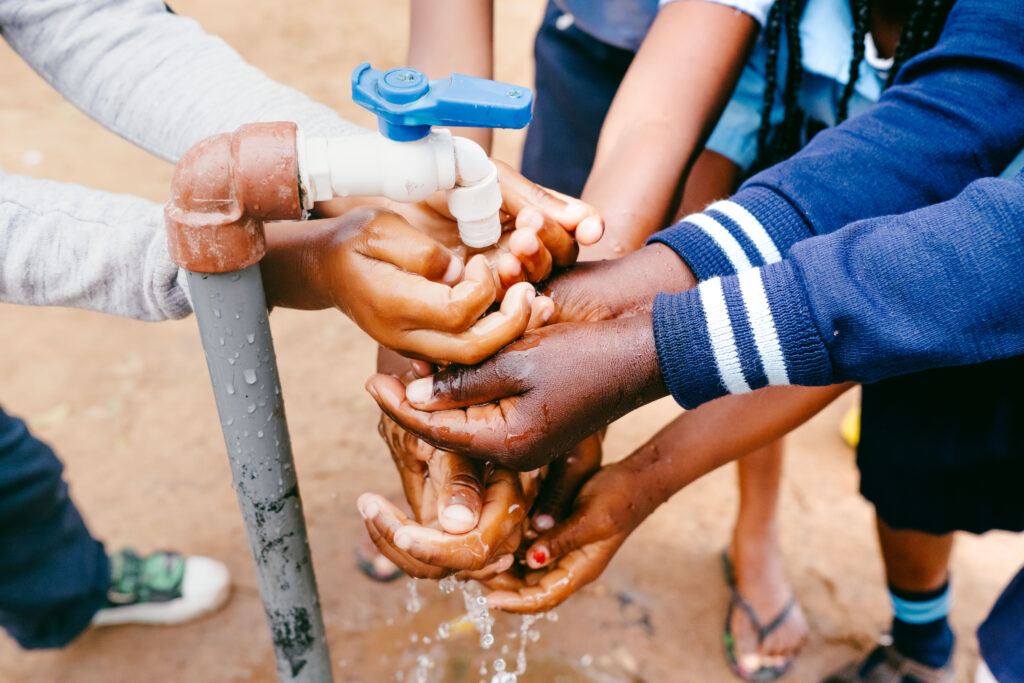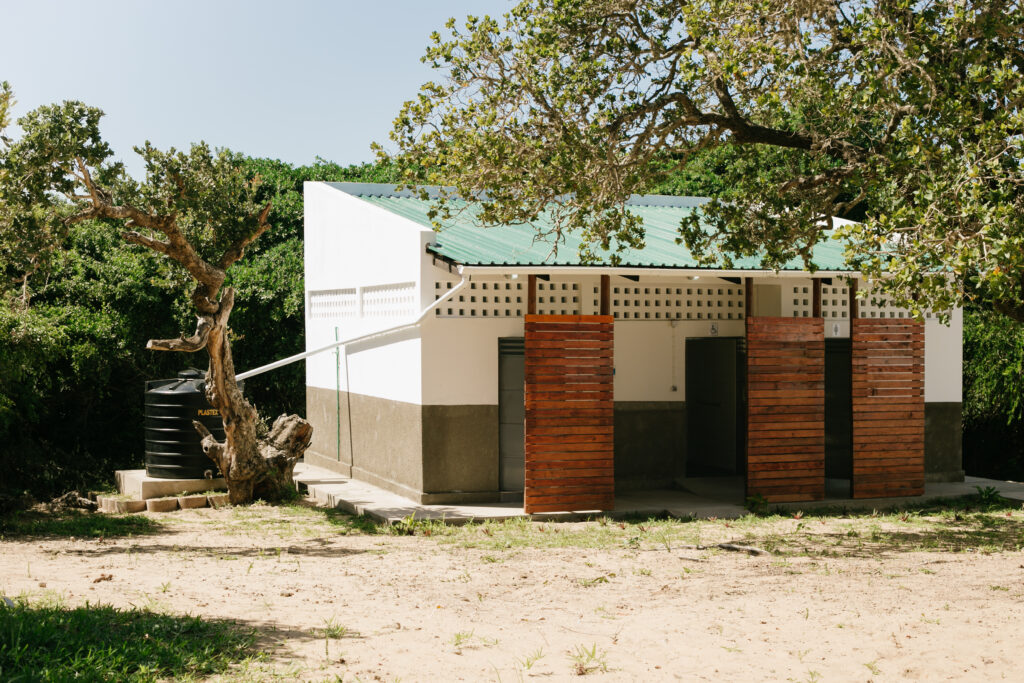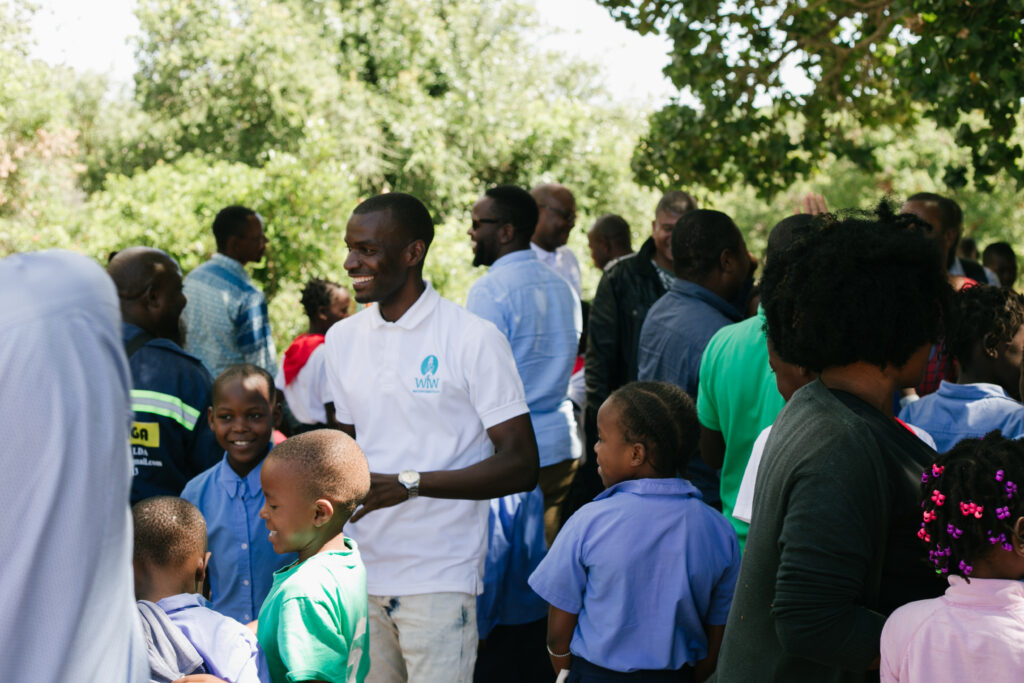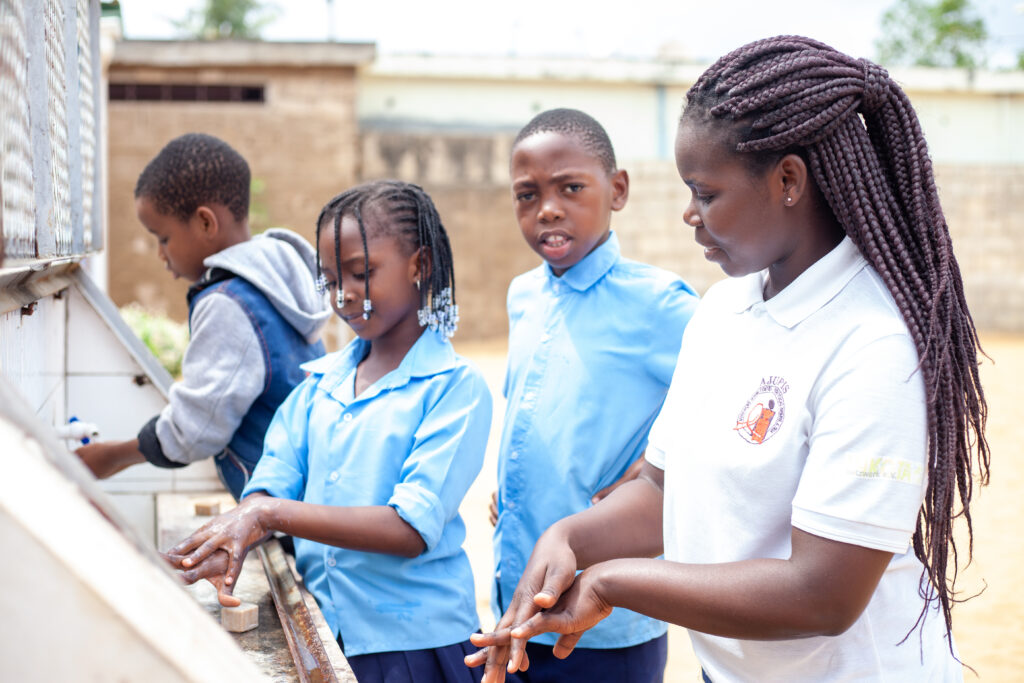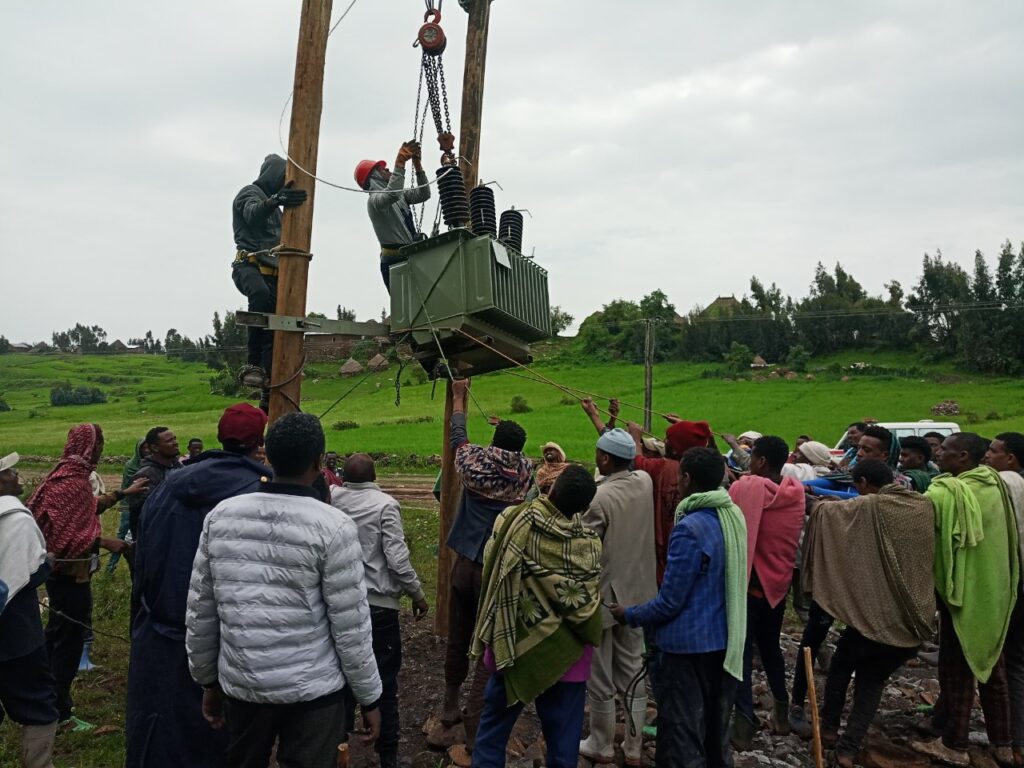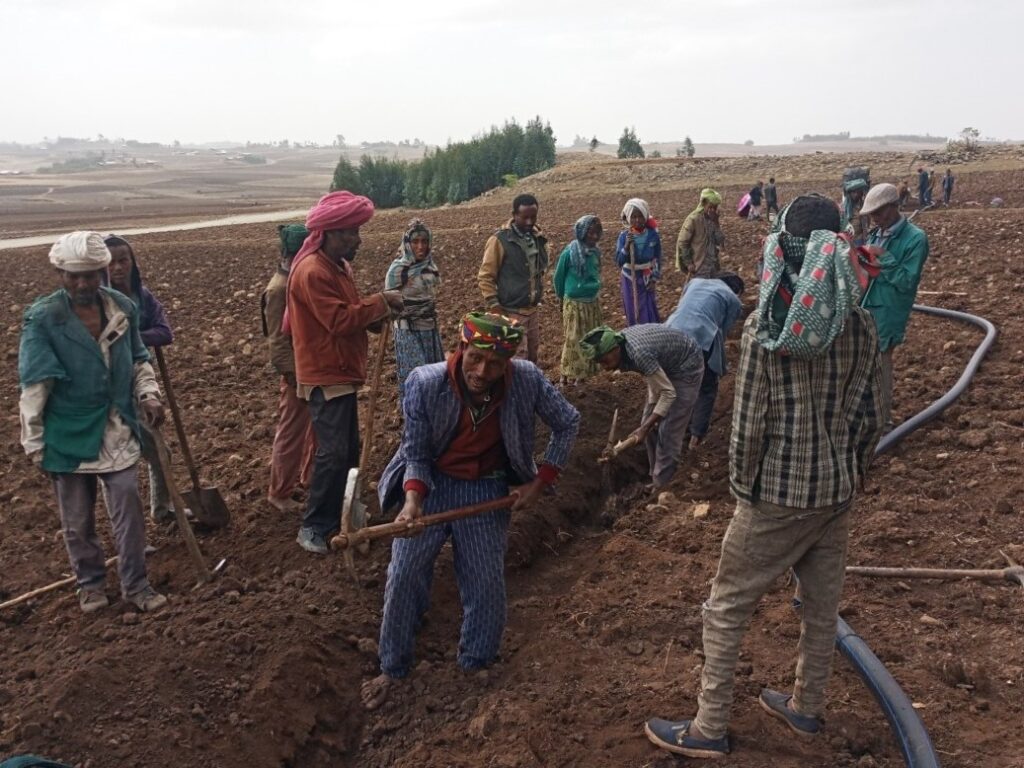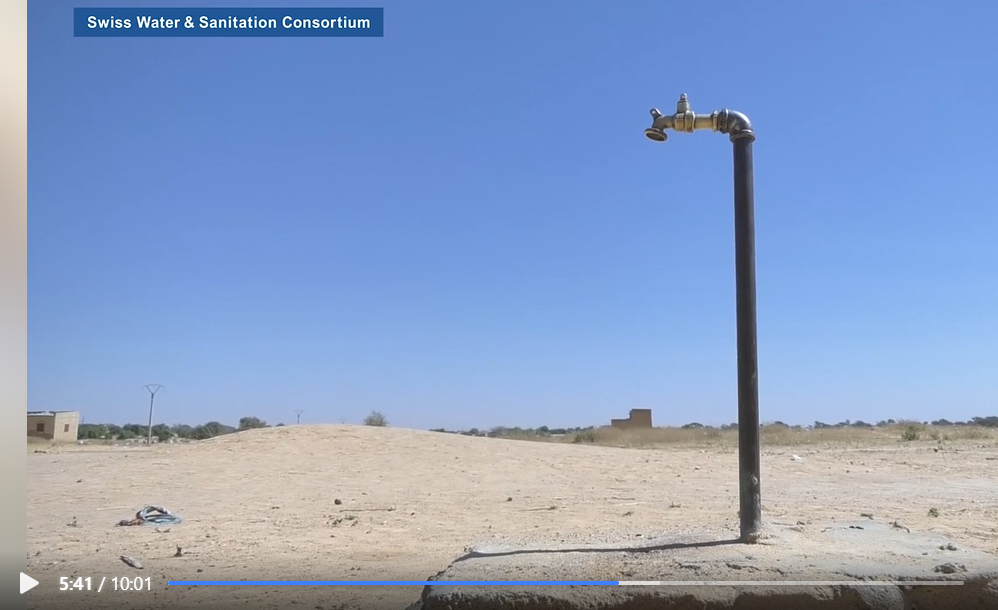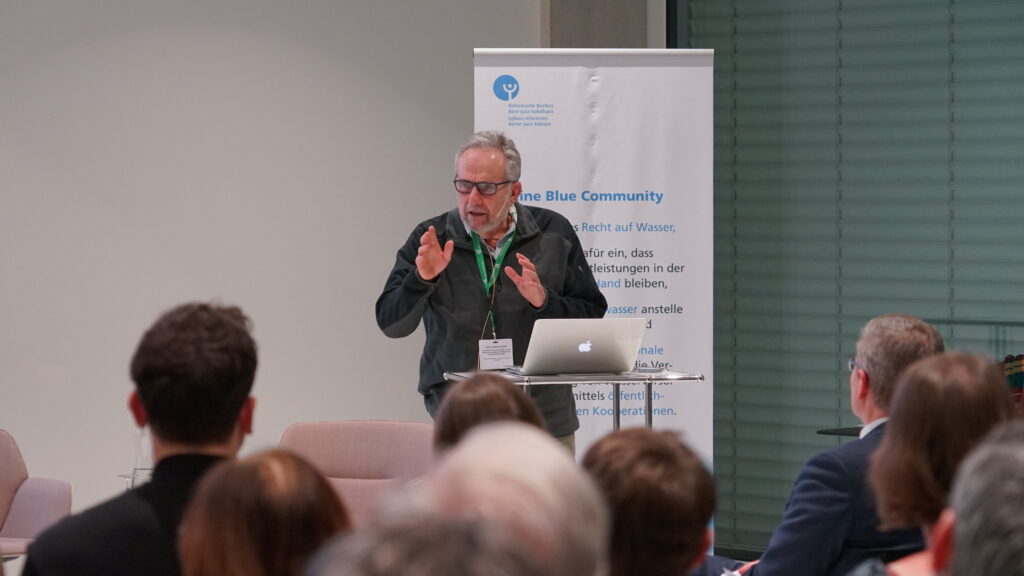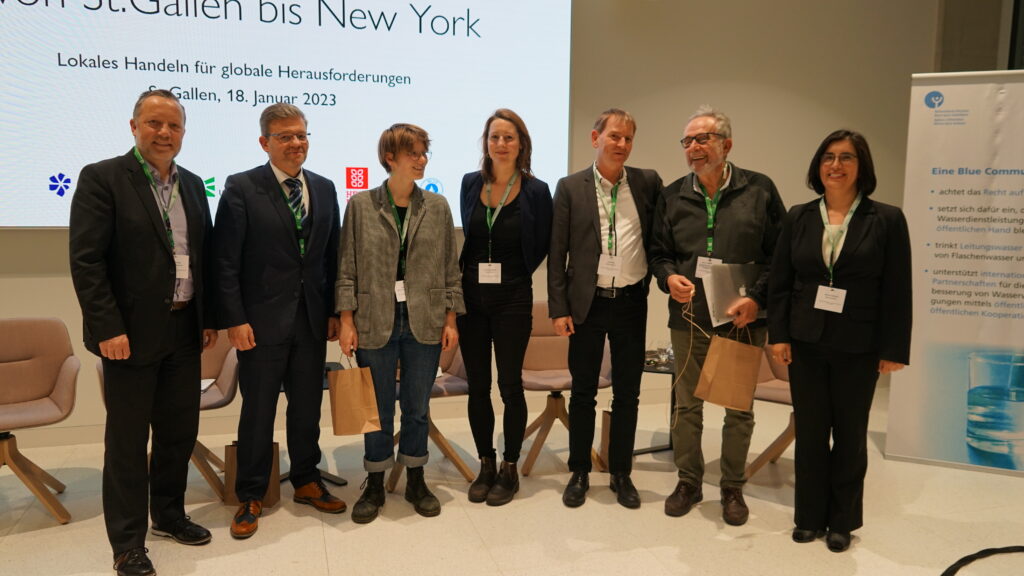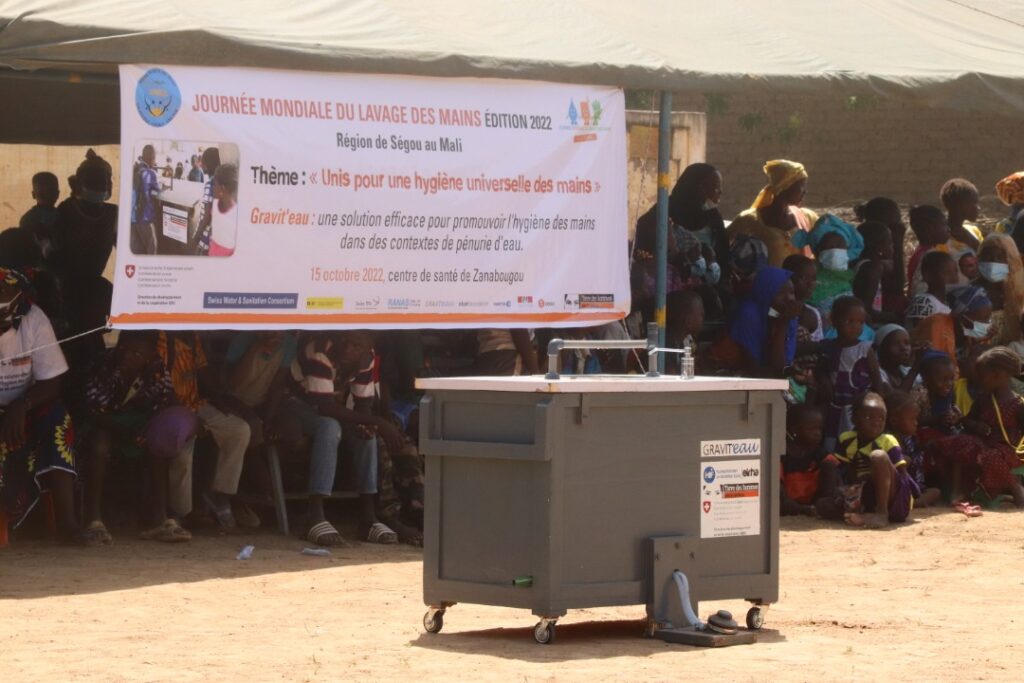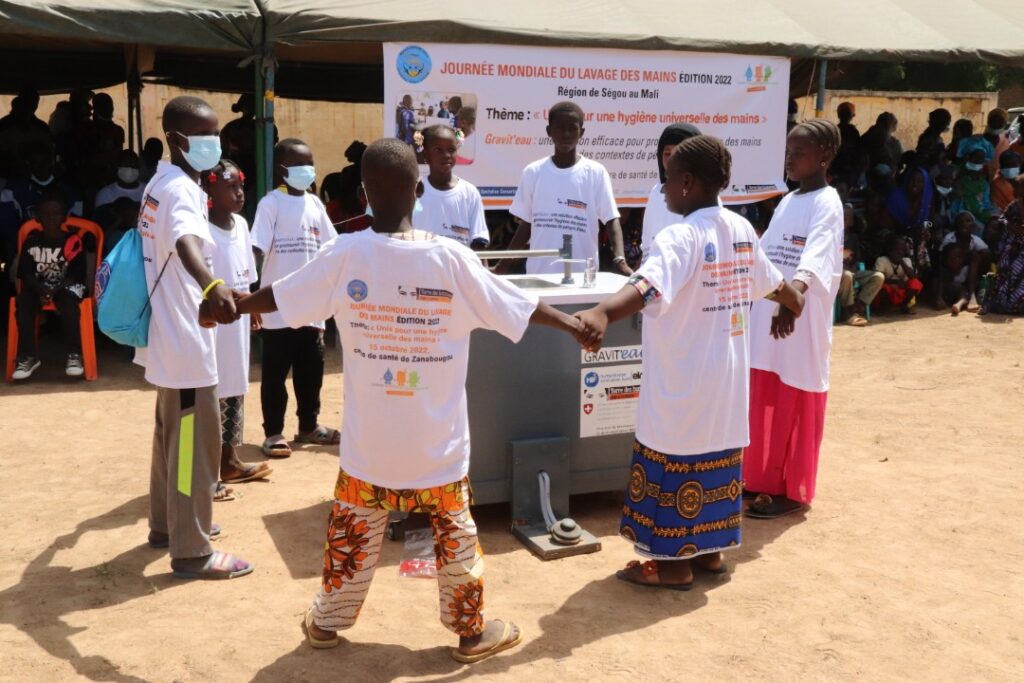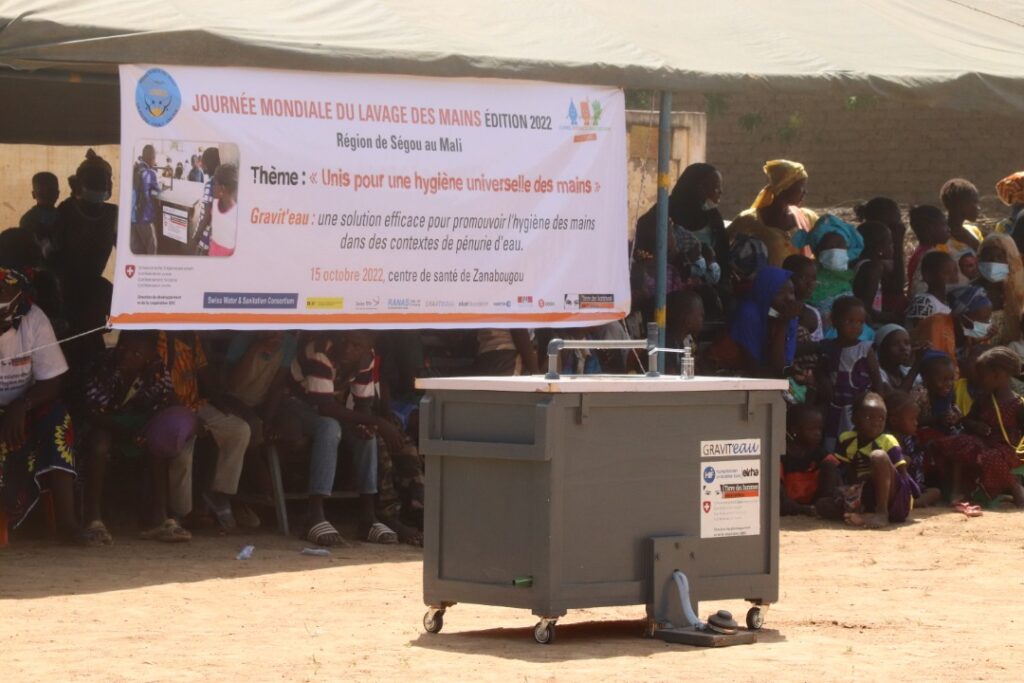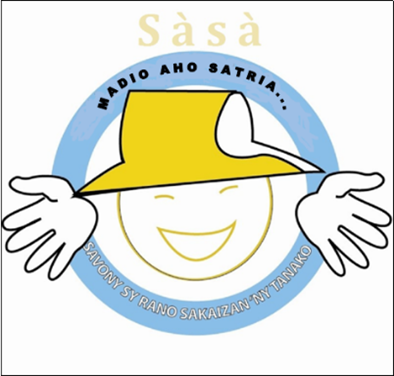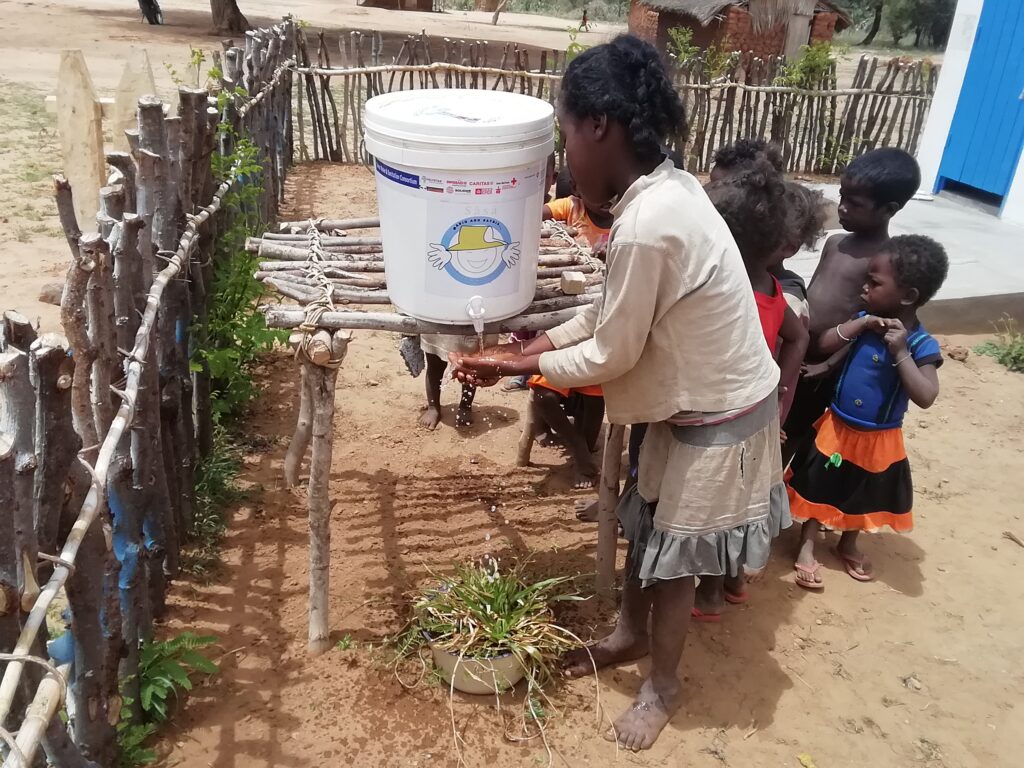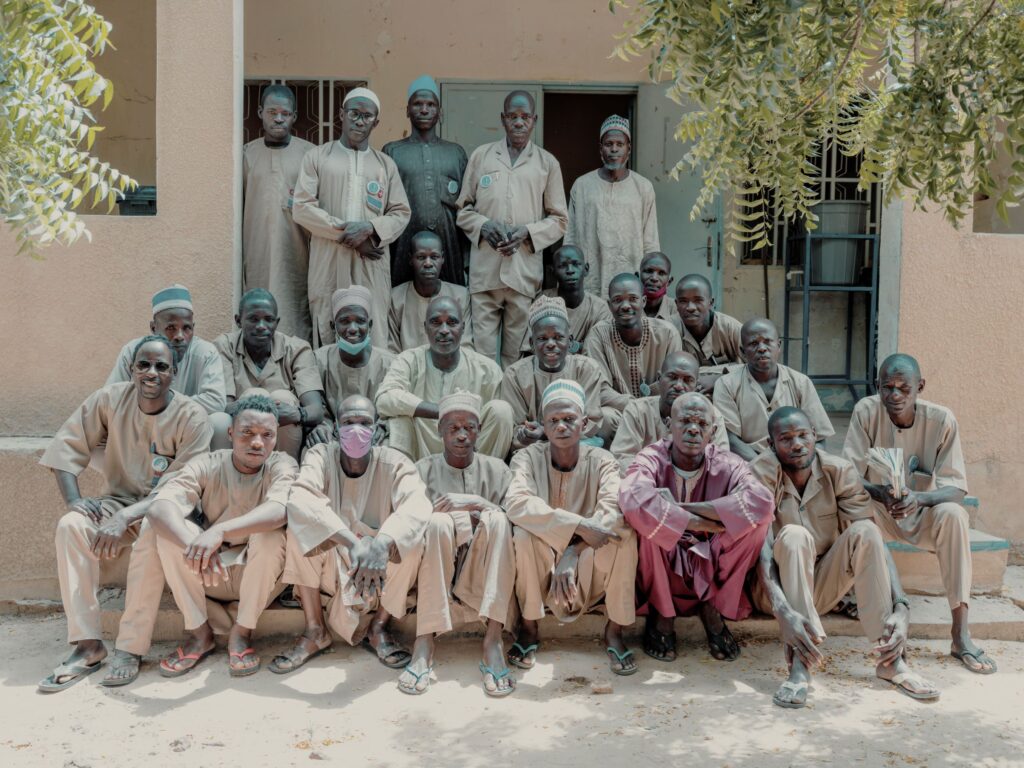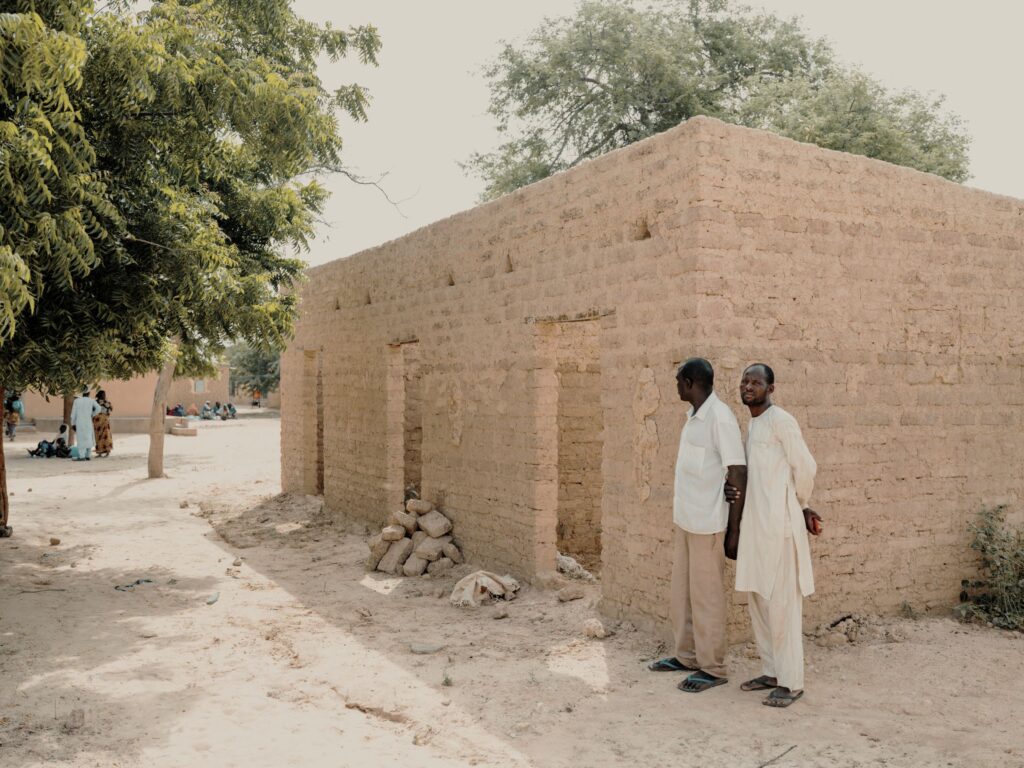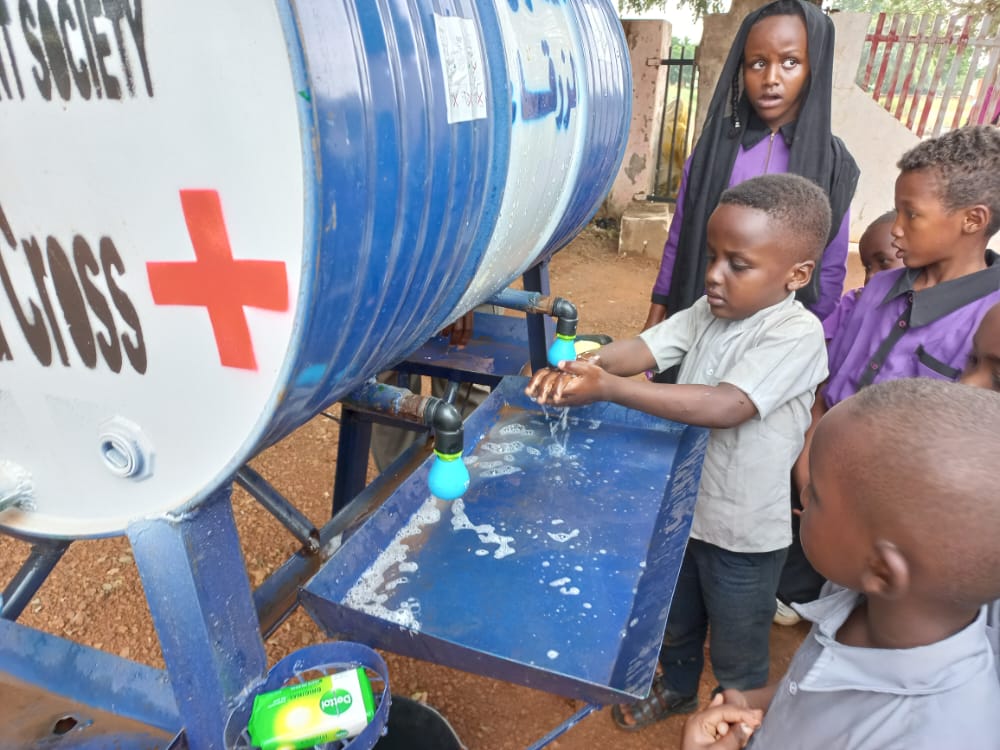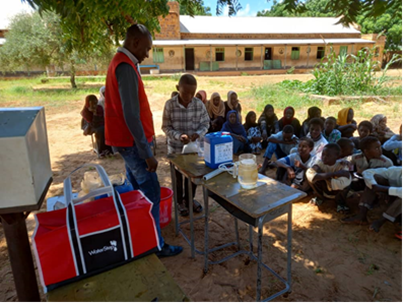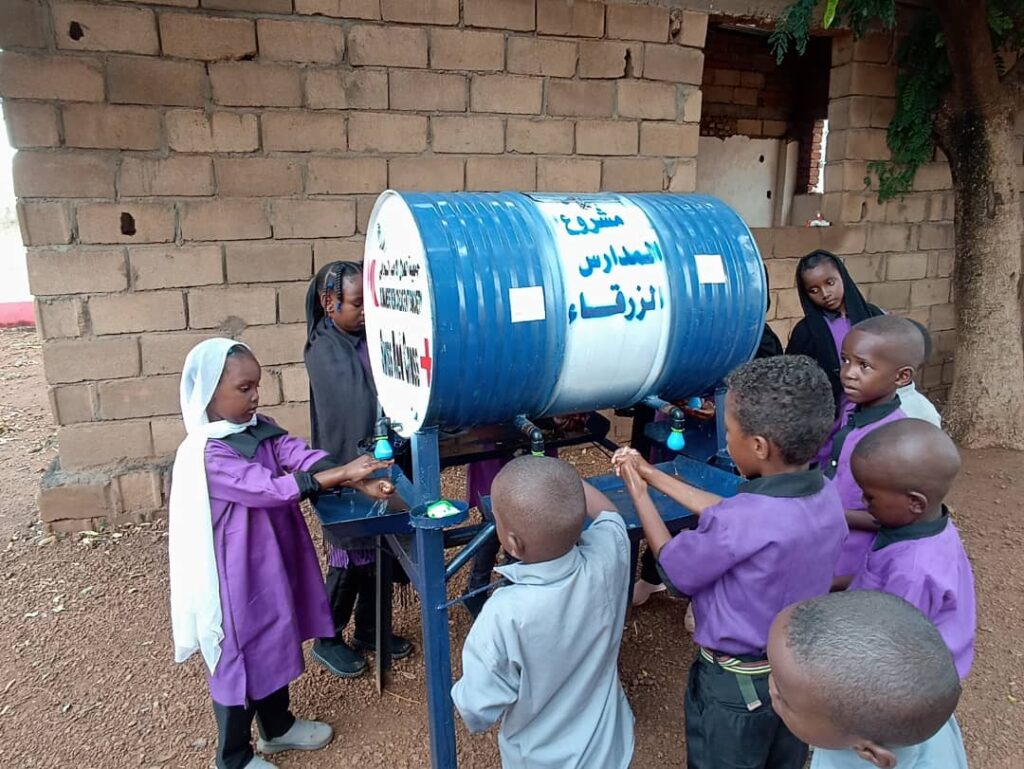Plaidoyer pour la promotion du droit d’accès à l'eau, l'assainissement et l'hygiène dans les établissements de soins de santé
(English version below)
Auteurs: Aboubacar BALLO (Conseiller Régional WASH Terre des hommes-Afrique) et Boureima Tabalaba (Coordinateur CNCIEPA/WASH Mali)
Crédit photo: Tdh Mali
Un homme politique célèbre a dit un jour : "Toute politique est locale". D'après nos expérience récente au Mali, nous pensons que l'on peut oser dire la même chose de l'eau : "Toute la gestion de l'eau est locale". Les problèmes liés à l'eau sont intrinsèquement locaux, tout comme leurs solutions les plus durables. Au Mali, au cours des dernières années, nous avons écouté attentivement les acteurs locaux et nous les avons aidés à faire entendre leur voix auprès des autorités responsables des services de l'eau, de l'hygiène et de l'assainissement (EHA) dans les établissements de soins de santé (ESS). Les autorités ont écouté ces voix locales et ont tenté de répondre à leurs préoccupations avec des stratégies et des budgets qui renforcent l'accès aux services EHA d'une manière équitable et inclusive.
Notre expérience récente en matière de plaidoyer pour l’amélioration des services EHA dans les ESS au Mali est une belle aventure. Elle avait pour objectif d'assurer que les demandes des plus marginalisés - dans les établissements de soins de santé et dans les communautés en général - soient écoutées et prises en compte par ceux qui détiennent le pouvoir au niveau local et national. L’approche basée sur les droits humains était donc au cœur de notre démarche de plaidoyer !
Le projet de plaidoyer de Terre des hommes au Mali, financé par la Direction du Développement et de la Coopération Suisse via le Consortium suisse pour l'eau et l'assainissement, raconte l'histoire d'efforts concertés pour renforcer les capacités locales, soutenir les initiatives des partenaires locaux, écouter attentivement les demandes des populations marginalisées par rapport aux questions WASH et stimuler la prise en compte par les décideurs, des principes de la redevabilité/ reddition de compte, équité et inclusion.
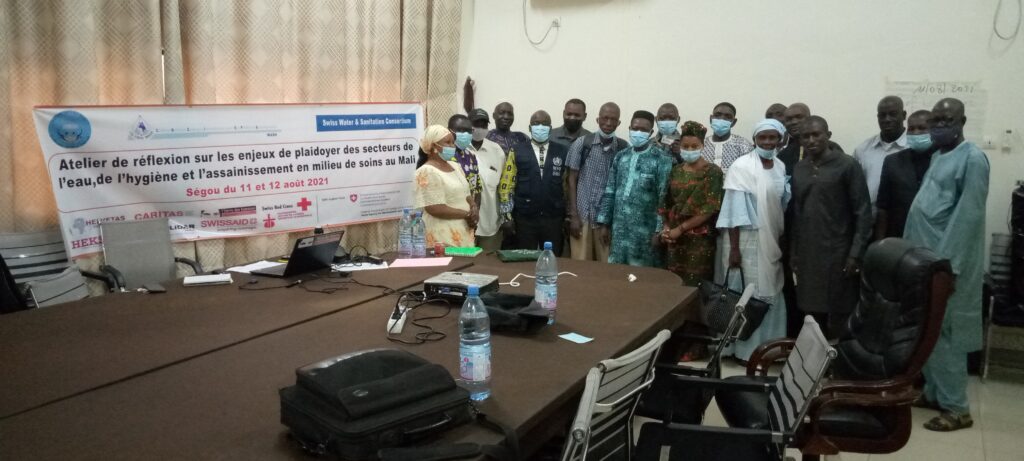
Nous avons commencé le projet de plaidoyer en acquérant une meilleure compréhension des preuves montrant le problème en question, c'est-à-dire la non consultation et participation de la société civile dans le développement de la stratégie quinquennale du ministère de la santé sur l'amélioration de l’accès à l’eau, l'assainissement et l'hygiène dans les établissements de soins de santé au Mali, et un manque de connaissance des communautés locales de leur droit à l'eau potable. A la suite d’une analyse de situation avec les acteurs, nous avons identifié des partenaires locaux qui seraient capables et désireux de collaborer avec nous et de poursuivre le travail longtemps après l'achèvement du projet, financé par un donateur.
C'est alors que le vrai travail a commencé : ces partenaires locaux, CN-CIEPA et les organisations locales qui y sont affiliées ont travaillé en étroite collaboration avec les parties prenantes du gouvernement et les citoyens locaux, en partie grâce à un processus connu sous le nom d’espace communal citoyen d'interpellation démocratique (ECID)". L'ECID a permis aux citoyens de mieux comprendre leur droit d’accès à l'eau potable et de faire connaître leur point de vue à leurs dirigeants élus (maires et parlementaires).
Le premier résultat a été l'implication prononcée de la société civile dans l'élaboration du plan quinquennal du ministère de la santé sur l'eau, l'assainissement et l'hygiène dans les établissements de santé, garantissant que la stratégie sera mieux orientée vers les principes d'équité et d'inclusion. Deuxièmement, WASH FIT, un outil d'amélioration de la qualité des services EHA dans les établissements de soins de santé, basé sur les risques, a été reconnu dans la stratégie comme un outil clé principal. En outre, trois communes du Mali ont accepté d'allouer 5 % de leurs budgets annuels aux activités WASH FIT à l'avenir.
Le nouveau plan stratégique a été élaboré avec la participation de la société civile et l’ensemble des acteurs clés du secteur. Il consacre entre autres, la priorisation du WASH en milieu de soins dans la planification budgétaire de l’état des collectivités locales et des ESS avec WASH Fit comme outil de gestion et de redevabilité ; le développement d’un plan national de financement du WASH en milieu de soins ; le renforcement du rôle de la société civile pour la participation aux prises de décision et le contrôle citoyen de la mise en œuvre du plan stratégique à travers l’organisation des espaces de redevabilité mutuelle à tous les niveaux du système.
Boureima Tabalaba, coordinateur de la Coalition-nationale-campagne-internationale-eau-potable-assainissement (CNCIEPA)
Par ailleurs grâce aux efforts de la société civile et compris avec le soutien du SWSC, l’accès à l’eau est désormais reconnu comme un droit fondamental dans le projet de la nouvelle constitution du Mali qui sera soumis au référendum.
Nous avons tiré plusieurs leçons de cette expérience, dont beaucoup ont été partagées lors de l'atelier régional du SWSC en Éthiopie en février 2023. Le plaidoyer n'est pas facile. Il faut du temps, des personnes et un budget. Il est difficile mais vital d'intégrer les voix des populations traditionnellement marginalisées à la fois dans la communauté au sens large (par exemple, les femmes, les filles, les personnes en situation de handicap) et dans les établissements de soins de santé (par exemple, les nettoyeurs).
La leçon la plus importante est que Terre des hommes, en tant qu'acteur international, ne doit pas mettre en œuvre en première ligne des activités de plaidoyer pour la promotion du droit d’accès à l’EHA. L’ONG doit soutenir les organisations locales de la société civile, et renforcer leur capacités afin qu’elles identifient elles-mêmes les thématiques de plaidoyer les plus pertinentes et qu’elles travaillent en collaboration avec les communautés et d’autres partenaires locaux, pour mener des actions de plaidoyer. Notre partenariat avec la CN-CIEPA accordée à cette dernière, lui a permis d’influencer les autorités sanitaires à prendre en compte la voix des communautés à la base dans l’élaboration du plan stratégique national WASH en milieu de soins. Des organisations fortes comme la CN-CIEPA existent dans tous les pays. Les organisations de la société civile sont généralement prêtes, désireuses et capables de diriger en première ligne des initiatives de plaidoyer. Engagez-les, accordez-leur des subventions, renforcez leurs capacités et faites-leur confiance. Travailler en étroite collaboration avec une organisation locale est le meilleur moyen de s'assurer que le projet sera réellement soutenu à long terme.
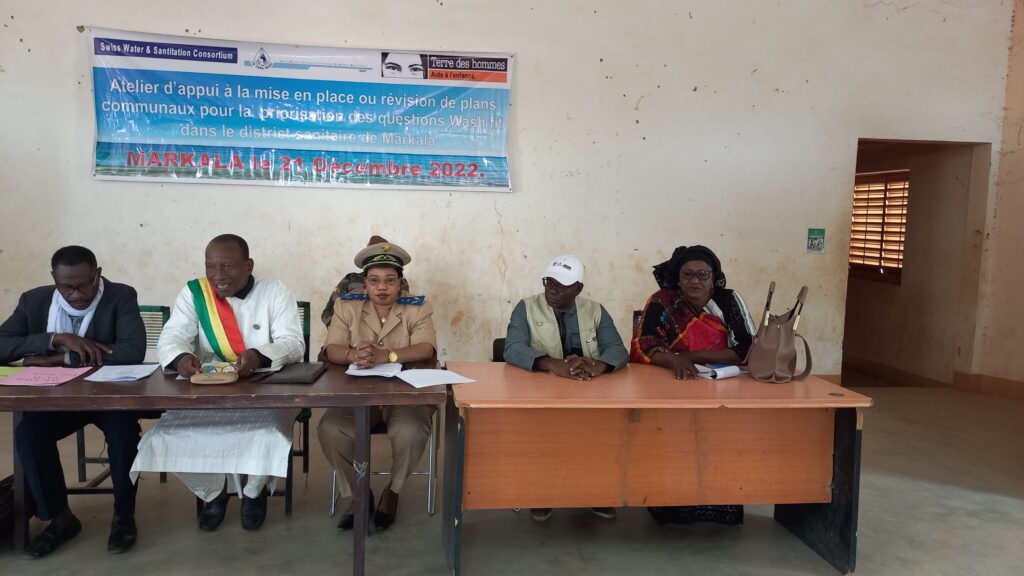
Ce travail de plaidoyer aux niveaux local et national est important parce qu'il est susceptible de déboucher sur des programmes mieux conçus et mis en œuvre aujourd'hui. Il peut également porter ses fruits sur la durée, bien après le soutien des donateurs. Mais nous savons qu'il reste des défis à relever : comment ce travail se poursuivra-t-il si aucun donateur international n'est disposé à fournir un soutien financier et technique ? Comment les programmes de plaidoyer peuvent-ils être suivis et mesurés de manière significative ? Comment réussir le plaidoyer dans des contextes politiques et sécuritaires fragiles comme au sahel par exemple ? Les autres membres du Consortium suisse pour l'eau et l'assainissement, et la communauté du développement au sens large, peuvent-ils obtenir le même impact dans leur pays ?
Il ne fait aucun doute que travailler avec des partenaires locaux est plus difficile et prend plus de temps à court terme. Cependant, le processus fonctionne au Mali. Il est trop tôt pour crier victoire, mais ce qui a été clairement établi au Mali, c'est que les défis locaux liés à l'eau requièrent des solutions locales, et ce principe directeur est la clé de notre travail actuel.
Local Leadership in Action in Mali:
Advocating for the Right to Water, Sanitation and Hygiene in Health Care Facilities.
Authors: Aboubacar BALLO (Regional WASH Advisor Terre des hommes - Africa) and Boureima Tabalaba (Coordinator CNCIEPA/WASH Mali)
Picture credits: Tdh Mali
A famous politician once said: "All politics is local". From our recent experience in Mali, we think the same can be said of water: " All water management is local ". Water problems are inherently local, as are their most sustainable solutions. In Mali, over the past few years, we have listened carefully to local stakeholders and helped them make their voices heard by the authorities responsible for water, hygiene and sanitation (WASH) services in health facilities. The authorities listened to these local voices and tried to address their concerns with strategies and budgets that enhance access to WASH services in an equitable and inclusive manner.
Our recent experience in advocating for improved WASH services in health care facilities (HCF) in Mali has been a great adventure. It aimed to ensure that the demands of the most marginalised - in health care facilities and in communities in general - are listened to and addressed by those who hold power at local and national level. The human rights-based approach was therefore at the heart of our advocacy work!
Terre des hommes' advocacy project in Mali, funded by the Swiss Agency for Development and Cooperation through the Swiss Consortium for Water and Sanitation (SWSC), tells the story of concerted efforts to build local capacity, support local partners' initiatives, listen carefully to the demands of marginalised populations in relation to WASH issues and stimulate the consideration of the principles of accountability, equity and inclusion by decision makers.
We began the advocacy project by gaining a better understanding of the evidence pointing to the problem at hand, i.e. the lack of consultation and participation of civil society in the development of the Ministry of Health's five-year strategy on improving access to WASH in HCF in Mali, and a lack of knowledge among local communities of their right to safe drinking water . Following a situation analysis with stakeholders, we identified local partners who would be able and willing to collaborate with us and continue the work long after the donor-funded project was completed.
This is when the real work began: these local partners, CN-CIEPA and its affiliated local organisations worked closely with government stakeholders and local citizens, in part through a process known as the 'espace communal citoyen d'interpellation démocratique (ECID)'. The ECID has enabled citizens to better understand their right to access clean water and to make their views known to their elected leaders (mayors and parliamentarians).
The first outcome was the strong involvement of civil society in the development of the Ministry of Health's five-year plan on WASH in HCF, ensuring that the strategy will be better oriented towards the principles of equity and inclusion. Secondly, WASH FIT, a risk-based quality improvement tool for WASH services in HCF, has been recognised in the strategy as a key tool. In addition, three communes in Mali have agreed to allocate 5% of their annual budgets to WASH FIT activities in the future.
The new strategic plan was developed with the participation of civil society and all key actors in the sector. Among other things, it prioritises WASH in the health sector in the state budget planning of local authorities and SSEs, with WASH Fit as a management and accountability tool; the development of a national plan for financing WASH in the health sector; the strengthening of the role of civil society for participation in decision-making and citizen control of the implementation of the strategic plan through the organisation of mutual accountability spaces at all levels of the system.
In addition, thanks to the efforts of civil society, including with the support of the SWSC, access to water is now recognised as a fundamental right in the draft of Mali's new constitution which will be submitted to a referendum.
Boureima Tabalaba, coordinator of the Coalition-nationale-campagne-internationale-eau-potable-assainissement (CNCIEPA)
We learned several lessons from this experience, many of which were shared at the SWSC regional workshop in Ethiopia in February 2023. Advocacy is not easy. It takes time, people and a budget. It is difficult but vital to include the voices of traditionally marginalised populations both in the wider community (e.g. women, girls, people with disabilities) and in health care settings (e.g. cleaners).
The most important lesson is that Terre des hommes, as an international actor, should not implement advocacy activities for the promotion of the right of access to WASH on the front line. The NGO should support and build the capacity of local civil society organisations to identify the most relevant advocacy issues themselves and to work with communities and other local partners to carry out advocacy actions. Our partnership with CN-CIEPA has enabled them to influence the health authorities to take into account the voice of grassroots communities in the development of the national WASH in Health Care strategic plan. Strong organisations like CN-CIEPA exist in all countries. Civil society organisations are usually ready, willing and able to take the lead in advocacy initiatives. Engage them, give them grants, build their capacity and trust them. Working closely with a local organisation is the best way to ensure that the project will actually be supported in the long term.

This advocacy work at the local and national levels is important because it can lead to better designed and implemented programmes today. It can also pay off over time, long after donor support has ended. But we know that challenges remain: how will this work continue if no international donors are willing to provide financial and technical support? How can advocacy programmes be monitored and measured in a meaningful way? How can advocacy be successful in fragile political and security contexts such as the Sahel? Can other members of the Swiss Water and Sanitation Consortium, and the wider development community, achieve the same impact in their countries?
There is no doubt that working with local partners is more difficult and time consuming in the short term. However, the process is working in Mali. It is too early to claim victory, but what has been clearly established in Mali is that local water challenges require local solutions, and this guiding principle is key to our current work.


